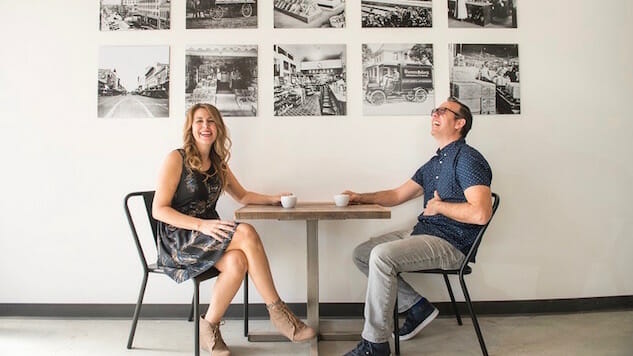Cocktail-Inspired Coffee and the Potential of Beans: Portola Lab Talks Coffee
Photos via Portola Coffee Lab
Voted 2015 Micro Roaster of the Year by Roast magazine, Portola Coffee Lab is an Orange County, California, coffee pioneer. Since opening their first retail location five years ago in Costa Mesa, Christa and Jeff Duggan have continued to expand across the county.
Portola has coffee shops in Orange, Tustin and Santa Ana, with locations opening soon in Huntington Beach and Mission Viejo. The flagship Costa Mesa shop includes the roastery and the coffee concept bar, Theorem. We talked with founder Christa Duggan about creativity and cocktail-inspired coffee.
Paste: How does creativity play into what you’re doing with Portola?
Christa Duggan: I think we have always been creative but I think what took us to the next level, as far as our creativity, is our space called “Theorem.” Theorem is a six-seat coffee playground that we developed for baristas to introduce creativity to the community. We’ve been able to push the envelope in Theorem because it’s a much smaller space. We change up the menu once a month. A lot of our drinks are cocktail-inspired, and every single menu item is created by our barista staff.
Paste: What brewing methods do you use?
CD: We do V60 pour overs. We use Trifecta, Siphon and Alpha Dominche [brewers]. Our espresso machines are from Slayer and Spirit.
-

-

-

-

-

-

-

-

-

-

-

-

-

-

-

-

-

-

-

-

-

-

-

-

-

-

-

-

-

-

-

-

-

-

-

-

-

-

-

-








































